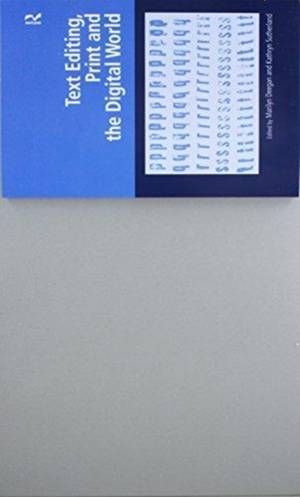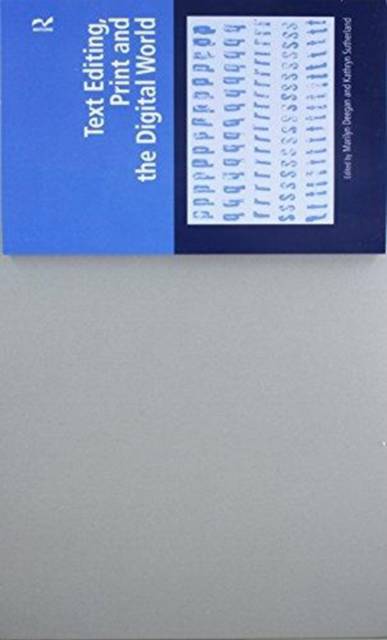
- Afhalen na 1 uur in een winkel met voorraad
- Gratis thuislevering in België vanaf € 30
- Ruim aanbod met 7 miljoen producten
- Afhalen na 1 uur in een winkel met voorraad
- Gratis thuislevering in België vanaf € 30
- Ruim aanbod met 7 miljoen producten
Zoeken
Text Editing, Print and the Digital World
€ 71,95
+ 143 punten
Omschrijving
Traditional critical editing, defined by the paper and print limitations of the book, is now considered by many to be inadequate for the expression and interpretation of complex works of literature. At the same time, digital developments are permitting us to extend the range of text objects we can reproduce and investigate critically - not just books, but newspapers, draft manuscripts and inscriptions on stone. Some exponents of the benefits of new information technologies argue that in future all editions should be produced in digital or online form. By contrast, others point to the fact that print, after more than five hundred years of development, continues to set the agenda for how we think about text, even in its non-print forms. This important book brings together leading textual critics, scholarly editors, technical specialists and publishers to discuss whether and how existing paradigms for developing and using critical editions are changing to reflect the increased commitment to and assumed significance of digital tools and methodologies.
Specificaties
Betrokkenen
- Uitgeverij:
Inhoud
- Aantal bladzijden:
- 224
- Taal:
- Engels
- Reeks:
Eigenschappen
- Productcode (EAN):
- 9781138272132
- Verschijningsdatum:
- 26/10/2016
- Uitvoering:
- Paperback
- Formaat:
- Trade paperback (VS)
- Afmetingen:
- 156 mm x 233 mm
- Gewicht:
- 311 g

Alleen bij Standaard Boekhandel
+ 143 punten op je klantenkaart van Standaard Boekhandel
Beoordelingen
We publiceren alleen reviews die voldoen aan de voorwaarden voor reviews. Bekijk onze voorwaarden voor reviews.










